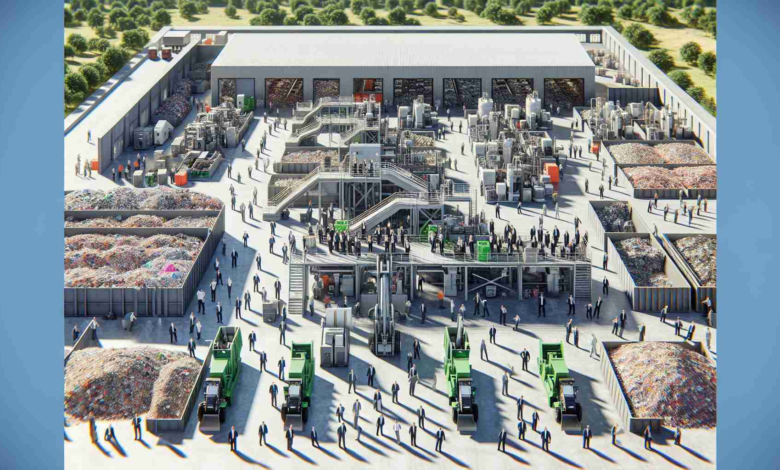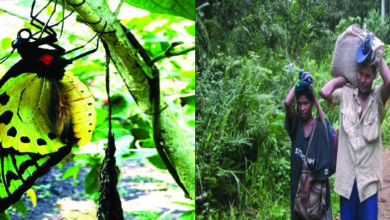India Forges Ahead in Sustainable Resource Management with New Recycling Facility

Summary: In a significant initiative for sustainable development, the Technology Development Board (TDB) has aligned with a private firm to set up an indigenous technology-driven recycling plant for lithium-ion batteries and electronic waste in Uttarakhand. This facility will not only reduce environmental hazards but also curb the nation’s dependence on imported minerals.
In a response to the climbing volume of lithium-ion batteries and electronic waste in India, the Technology Development Board, a division of the Ministry of Science & Technology, has made a decisive move towards environmental stewardship and resource conservation. By joining hands with Remine India Private Limited, the board aims to operationalize a state-of-the-art recycling facility that will handle both lithium-ion batteries and a gamut of e-waste materials.
Uttarakhand, a northern state known for its rich natural heritage, has been chosen as the site for this green venture. The decision comes at a crucial time as India faces the daunting challenge of managing its mounting e-waste, being the world’s third-largest e-waste producer. In conjunction with the launch of this recycling plant, which represents a total investment of Rs 15 crore, TDB is allotting Rs 7.5 crore in financial aid to ensure the project’s swift execution.
This endeavor is set to revolutionize the current landscape where a mere fraction of spent lithium-ion batteries is recycled, leaving the vast majority to deteriorate in landfills. By harnessing advanced technology developed by the Centre for Materials for Electronics Technology in Hyderabad, the plant will convert this waste into valuable secondary raw materials, thereby hastening India’s progression towards a circular economy. This strategic union facilitates the integration of informal recycling sectors within the formal market stream, thereby fortifying India’s environmental and economic resilience.
The Proliferation of Electronic Waste and Lithium-Ion Battery Recycling
The issue of managing electronic waste (e-waste) and spent lithium-ion batteries has become a pressing global environmental challenge. With the ubiquity of electronic devices and the widespread adoption of electric vehicles (EVs), the generation of these types of waste is surging exponentially. This has triggered the need for efficient and sustainable recycling methods to recover precious metals and mitigate the environmental impact associated with waste disposal. The rise in e-waste is contributing significantly to the creation of circular economies, where resources are reused, recycled and recovered, minimizing waste and reducing the need for virgin resource extraction.
Market Forecasts and Industry Growth
The e-waste management and battery recycling sectors are poised for substantial growth. Market forecasts suggest a compound annual growth rate (CAGR) of significant percentage points over the next decade. The increasing scarcity of raw materials, coupled with stricter environmental regulations, are major drivers of this industry’s expansion. Companies and governments are investing heavily in technologies to improve recycling efficiency and recovery rates. This not only addresses environmental concerns but also has the potential to be economically lucrative due to the value of the recovered materials.
Challenges and Opportunities
Despite these initiatives, the e-waste and battery recycling industry faces numerous challenges. On the logistical side, there is the issue of collecting and transporting hazardous materials safely and cost-effectively. Ensuring that the waste is handled responsibly from collection through to the final recycling process is a complex task that requires robust management systems and transparency.
Technologically, the industry is tasked with improving the recycling process to increase recovery rates and cope with newer battery chemistries. As technology advances, recycling processes must adapt to handle different types of batteries and electronic components efficiently. The integration of informal recycling sectors—where much of the e-waste is initially processed—into a formal, regulated industry is another significant hurdle that countries like India are facing.
The economic aspect involves the need for up-front investment in recycling infrastructure and technology, which can be a barrier to entry for small or new players. However, once established, these facilities can generate stable revenue through the sale of reclaimed materials and may even benefit from government incentives.
Conclusion
The establishment of an indigenous, technology-driven recycling plant for lithium-ion batteries and electronic waste is an essential step for India as it tackles the pressing issue of waste management and material recovery. With environmental concerns and resource scarcity at the forefront of global challenges, such initiatives are critical for a sustainable future. These facilities are expected to not only alleviate the burden on the environment but also provide economic opportunities through material recovery and recycling.
For more in-depth information and research on this industry and its growth prospects, readers can explore the following reputable sources:
– International Energy Agency (IEA) for insights into the global energy market, including electric vehicles and battery usage trends.
– United Nations Environment Programme (UNEP) for reports on electronic waste and its environmental impact, as well as recommendations for policymakers.
– Battery University for technical knowledge on different types of batteries, including their life cycle and recycling methods.
By fostering such partnerships and investments, nations are better placed to address the mounting challenges associated with e-waste and evolve towards a more sustainable and resilient future.

Leokadia Głogulska is an emerging figure in the field of environmental technology, known for her groundbreaking work in developing sustainable urban infrastructure solutions. Her research focuses on integrating green technologies in urban planning, aiming to reduce environmental impact while enhancing livability in cities. Głogulska’s innovative approaches to renewable energy usage, waste management, and eco-friendly transportation systems have garnered attention for their practicality and effectiveness. Her contributions are increasingly influential in shaping policies and practices towards more sustainable and resilient urban environments.



